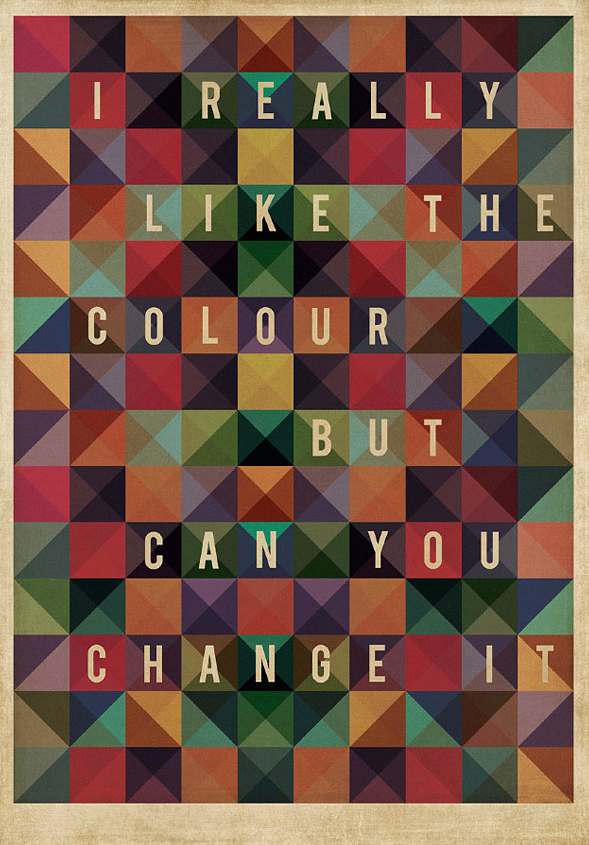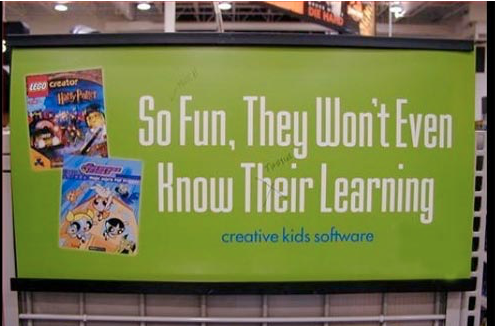A while back, we came across this somewhat-snarky but kinda fun “10 Commandments for Clients” created by a graphic designer whose client base is clearly not as awesome as ours. It got us thinking about what requests (we won’t call them demands) we have of our own clients. For this week’s blog post, we present for your consideration our version of 10 (actually, just 9) client commandments.
The requests you’ll read below aren’t just random snarkiness, and they’re not just for the purpose of making our jobs easier. Our client commandments serve the ultimate purpose of making the work – and results — we produce for our clients better and more effective.
But before we get into what we ask of our clients, here’s what our clients can expect from us.
1. We promise listen to you, respect your knowledge and insight, and consider your input when we create your project.
2. When you don’t like work we’ve done, or want something changed, we won’t get all diva on you and throw a tantrum. We’ll go back to the table and work until we get it right.
3. That being said, we’ll always give you our honest assessment based on our years of experience, and (respectfully) let you know when we don’t agree with you on something.
4. We also know that you’re the boss, and thus have the final say.
5. We’ll do our very best work on every project, no matter how small or large.
6. We’ll do everything in our power to deliver work when we say we will and meet your deadlines.
7. We’ll tell you up front when we don’t have the right skill sets for the project you need completed. If there’s something we can't do, we’ll give you recommendations on where to go to get it done.
8. We’ll charge you a fair price for our time and talents. We won’t low-ball and we won’t gouge you.
So now that you know what to expect from us as your creative partner, here’s what we hope to get from you in return.
Know What You Want
Before you ask us to start a project, take the time upfront to identify and articulate your goals and expectations. What do you want your project to accomplish? What outcome are you looking for? What action do you want your audience to take? And who, exactly, is your audience?
The more specific you are, the more likely we are to create something that achieves your goals. So “I want my website to look professional,” is all fine and good. But, “I want my website to drive sales of this particular product to stay-at-home moms,” is even better.
If you’re not sure what your objectives are, or who you’re trying to reach, we can help with that. But let’s take the time do our homework, before we end up producing a project that doesn’t get the job done.
Don’t Kill Us with Crazy Deadlines
Good creative work doesn’t happen overnight. It takes time to brainstorm and concept, research and noodle, solve problems and create something of quality. Sure, you can have your project done fast. But if you want it done right, give us a reasonable amount of time to produce a piece that accomplishes what you want.
We get it; stuff happens. Unexpected deadlines pop up. Opportunities present themselves with no warning. Whenever we can, we’ll jump on deadlines at a moment’s notice. But we ask our clients not to artificially force breakneck turnarounds, only to then take weeks to provide feedback on what was supposed to be a rush job. Nothing kills creativity faster than “I need it done yesterday.”
There’s a Reason You Hired Us
Hopefully that reason was because you like our work and feel confident in our abilities. So trust us. We’ve been in the creative marketing business for a long time. We kind of know what we’re doing — including what works and what doesn’t.
When we make a recommendation, or try to persuade you that, say, your logo doesn’t need to be that big, trust that we know of what we speak. We ask that you respect our expertise and hear us out. We’ll ultimately do what you ask us to. But when we think it comes at the detriment of your project or results, we’ll definitely let you know.

One more request: Please, please, please don’t ask your nephew or hairdresser or raquetball partner to review and critique the work we’ve done. Don’t ask us to change the color of your brochure cover because your spouse hates orange. This goes back to the title of this section: there’s a reason you hired us instead of your dog-walker.
This Isn’t About You
Yes, you are the client. And yes, our goal is to keep you happy. But perhaps more importantly, we want to connect with your audience — and so should you. So when you provide feedback on creative we’ve done, we ask that you put your audience’s preferences above your own.
Just because you don’t like a particular font or word choice doesn’t mean your audience won’t. Especially if you’re, say, a 57 year-old male corporate executive selling products to 20-something women. We’ve got a whole blog post written about the importance of creating for your audience vs. for yourself. It’s worth a read.
Creative Death by Committee
We always recommend our clients have one person who is ultimately responsible for making final creative decisions. Nothing waters down good creative work quite like a room full of people sitting around a table, feeling compelled to point out what they don’t like. We can’t please everyone in that room, and trying to only undermines the strength of the work we’re trying to produce. For a better look at what we mean, watch how group-think destroys the simple stop sign.
Or what happens when Microsoft redesigns the iPod packaging.
We do understand the importance of asking key people on your team to review and provide feedback. It helps promote ownership and buy-in of the work, and can lead to some great insight and ideas. But we do ask that clients have one person in a leadership role responsible for filtering out the feedback, and providing us with only the input we need to know and respond to.
Ch-ch-ch-ch-changes
Hand in hand with this, we also ask clients to assign a single point person to provide us with all feedback, inputs, and edits on creative. This keeps us from being inundated with dozens of emails from dozens of different people containing random edits and thoughts that we then have to wade through, hoping to catch all the changes.
Having a single point person to filter and feed us all the edits — all at once — makes the revision process go so much more smoothly and efficiently. It reduces our chances of missing edits and making mistakes, and speeds up the project considerably.
One last thing on changes and edits: We try to get our clients to make all their content edits before it gets to design. It’s so much easier to make changes to copy in a Word doc, then it is in an InDesign file or on a web page. When final copy is approved, it works better for everyone involved if that copy truly is final.
Make It Better
“I know what I like when I see it.” Nine words every creative dreads hearing. We want your feedback. We respect and value it. And we want to respond to it. But vague comments and direction result in vague work. So when providing feedback on creative works in progress, we encourage our clients to be as specific as they can.
Simply asking us to “make it better” doesn’t give us a whole lot to go on. If you don’t like a headline or a sentence, let us know what it is you don’t like about it. If you want to see something more “professional” or more “edgy,” tell us what you mean by that. If you’re not happy with a particular photo or image, let us know why and what kind of image you’d rather see. The more concrete and specific you can be, the more likely we are to nail it the next time.
We’re Only Human
We have a professional proofreader on our team, and she’s amazing. Truly. She catches stuff we’d never even notice. But she is human, after all, and not all typos are as blatant as this one.

There are some mistakes only clients can catch (names of products, pricing, addresses, phone numbers, etc). So after we’ve proofed the work, we always ask clients to carefully review the creative for accuracy and approve it before it goes to print or gets launched.
Pay Day
Our last request of our clients is that they pay us on time. We strive to deliver our work on time and meet the project’s deadlines. We ask clients to return the favor by paying invoices by their due date. We have a pretty generous 30-day net payment policy, and — unlike many agencies — we don’t charge interest on late payments. Paying us on time ensures that that we’ll be eager to take on your next project and continue meeting our deadline obligations. It tells us that you value our time and talents, just as we value yours.
(For any fellow creative out there who might be reading this, here’s a great video on making sure you get paid for your work).
We’re In This Together
As your creative partner, our job is to help you do what you do better — whether that’s selling more products or services, reaching more customers, doing more business, or all of the above. The above client commandments (actually, more like requests) aren’t just for our benefit; they’re for the client’s benefit as well. When creative team and client both respect the process, that's when you start to see results.


